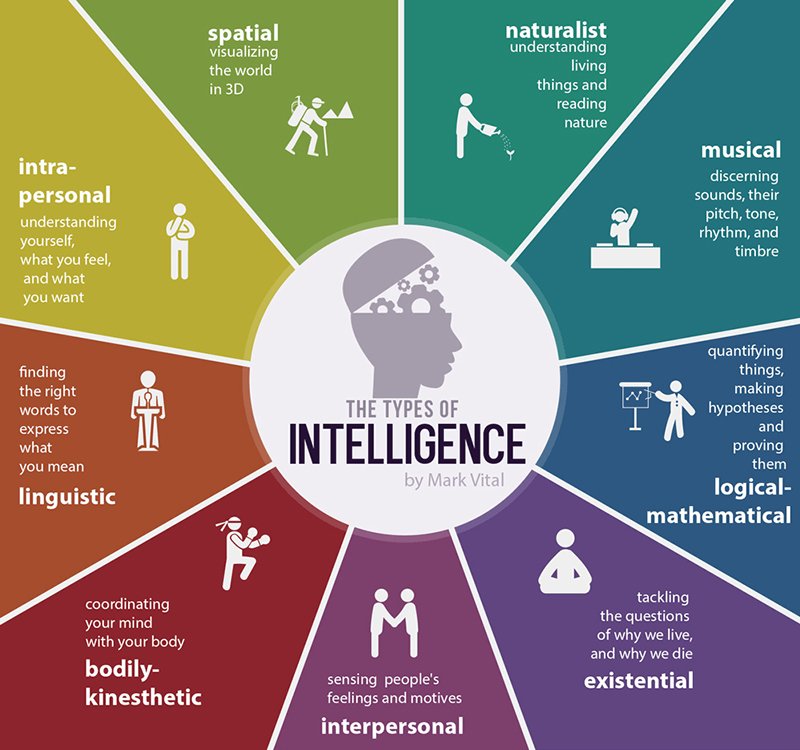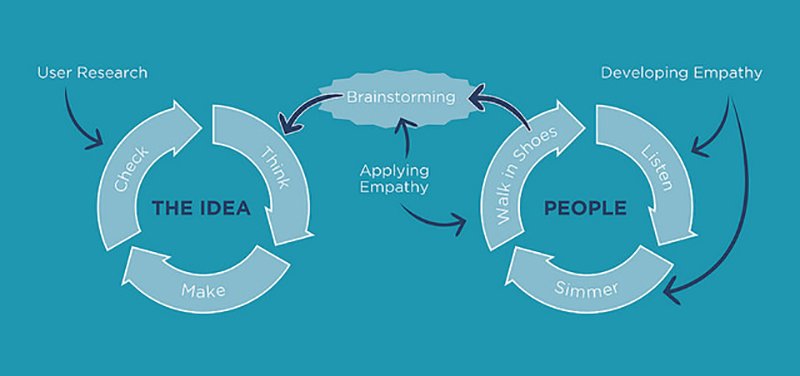I’m the chef who cooks the meat but doesn’t eat the meat as I’m a pescatarian. When we watch the same film or attending a concert simultaneously, we are not seeing the same film because the parts that we don’t see and have to perceive about the characters is all different. Everybody is seeing a different movie even when we are watching the same movie, so we cannot be caught up in the outcome.
Providing valuable insights
As a subject matter expert, you possess the confidence to engage with any stakeholder, whether it's the CEO, CMO, or end-users of your product. Your expertise shields you from being outflanked in conversations with anyone, making you a trusted authority in your field. When discussing market trends and implications, your goal is to articulate the necessity for change and how it should be approached, however, merely presenting trends and potential impacts may not be enough to drive action. To inspire change, you must emphasise the critical need to act promptly, driving your clients and team members to embrace innovative solutions that can lead to success in the evolving landscape. And by conveying the urgency of the situation, you motivate people to consider and adopt alternative approaches instead of sticking to their previous practices. Are you interested in guidance for navigating market challenges? Contact me via e-mail for a 1:1 meeting or workshop for your team.
Prioritise and sharing
I think that if you want to be an effective consultant it's essential to prioritise what's most important over what's merely relevant. Your role is to provide valuable advice and recommendations to your clients, guiding them towards the results they desire, as without fulfilling this consultative duty, you risk becoming irrelevant in their eyes. To become a successful consultant your approach should involve breaking down complex information into manageable parts – facts and impacts. Your ability to understand the overarching trends in the world, and then assess their implications for your clients, giving them a clearer picture of how these trends will affect their businesses. This foundational knowledge will serve as a basis for crafting well-informed and actionable recommendations for your clients, and this will also position yourself as a trusted advisor
Become a trusted advisor
Imagine walking into a room and confidently sharing your keen observations about the current market trends. You outline the potential implications for companies and individuals who resist change. These insights are backed by your values and beliefs about the market's direction, and you find yourself at the intersection between your expertise and your clients' businesses.
You boldly present your recommendations, explaining that you stand firmly behind them. Your thoughtfulness and reflection have given you the ability to anticipate your clients' needs even before they are aware of them. This foresight establishes you as a trusted advisor in their eyes. By combining your unique perspective on the market with a deep understanding of your clients' challenges and aspirations, you can guide them towards success. As a result, you build strong and lasting relationships, cementing your reputation as a reliable and valued partner in their business endeavours. Contact me via e-mail for a 1:1 meeting.
Dear marketing leaders
You have often heard the advice to "build your brand" and "tell your story.” What if your customers simply don't care? The truth is, what truly matters to them is themselves – their problems, their needs, and their aspirations. In reality, they aren't as invested in your brand or your story as you might think. So, instead of solely focusing on pushing your brand and narrative, it's essential to shift your approach. How? By understanding your customers' perspectives and catering to their specific needs and concerns is crucial. By empathising with their challenges and offering solutions that genuinely resonate with them, you can create meaningful connections and foster brand loyalty.
At the end of the day, I think successful marketing is about putting the customer first, addressing their pain points, and demonstrating how your product or service can improve their lives. So it makes sense to redirect your marketing effort towards delivering real value to customers and building lasting relationships based on trust and understanding.
The habit of gratitude
The more you educate yourself the more you understand where things come from, the more obvious things become, and you begin to see lies and deception everywhere. I think seeking and embracing the truth is essential for finding freedom. Developing a habit of gratitude, intentionally looking for and feeling grateful for life and the abundance around us. Staying in a state of gratitude and joy, is the best habit we can develop because in joy there is no room for worry.
Taking back your power
I think that if you want to achieve anything in this world you have to get used to the fact that everyone is not going to like you. And if you want everyone to like you then this would be inconsistent with making any significant impact. Therefore, I made a deal with myself a long time ago that if people didn’t like me because they disagreed with me then I was OK with that, and if a person didn’t like me because they were intimidated by something I said, then I was also OK with that. On the other hand, if someone I respected didn’t like me then I would have a problem, and I would definitely have to take accountability for that and admit that I am doing something wrong.
Expand your mind (Pt-2)
Expand your mind (Pt.)
I'm not particularly keen on discussions about strengths and weaknesses without considering the context. Instead of viewing ourselves in terms of strengths and weaknesses, I think it's more accurate to see our traits and attributes as unique characteristics. In the appropriate circumstances, these qualities can transform into strengths, while in unsuitable environments, they might appear as weaknesses. It's crucial to understand our true selves and seek environments where our specific traits can be utilised to our advantage.
““Don’t ask people how clever they are, instead ask them how are they clever.””
First impressions
Image c/o Inc. Magazine
How can I make a great first impression?
Making a great first impression is crucial in both personal and professional settings. A professor from Howard University once told me that I made a great first impression because I showed trust and respect. I was raised to show empathy and authority, so I believe that we are saying exactly the same thing. One can definitely build upon these traits to improve one’s ability to make a positive first impression, for example, by smiling and maintaining eye contact or by using positive body language.
““You never get a second chance to make a first impression.””
Clarify the purpose
Image c/o Indi Young’s book “Practical Empathy”
I was born with practical empathy, the ability to see people for who they are and what they really want. I’m always trying to understand:
• Why are things the way they are?
• What are people looking for?
• Why is this layout the way it is?
• If it is not working on me, why is it working on other people?
Watch what people do
Small transactions in awesomeness
Part of Western culture, the science and technology we developed is measuring things, even things that are unmeasurable. I think one of the pleasures of art is it takes us away from the world of measurement and allows us to feel enormous dwells of emotion.
““You can’t manage what you can’t measure.””
The level of intimacy
When self-disclosure works out well, it can have positive effects for interpersonal relationships. I think the purpose of your self-disclosure should be to enhance the communication and the relationship, not to divert attention, seek sympathy, or manipulate the other person. And intelligence is the ability to change your mind when presented with accurate information that contradicts your beliefs.
““People are happy to accept information as long as it’s wrapped in entertainment and stories.””
Do not compromise
People who can make an emotional connection between their work and something socially meaningful to them are more likely to find satisfaction. And they are better able to adapt to the inevitable stresses and compromises that come with working in the world. The three things one should never compromise:
1. Your integrity
2. Your values
3. Your principles
I think you should stay true to yourself in all you do, as authenticity cannot be faked.
““Most of the successful people I’ve known are the ones who do more listening than talking.””
How do we differentiate?
Image c/o The NY Times
Control is a major human addiction, and thinking we have control by keeping everything in our heads is deceiving. When we combine money and psychology then we’ll begin to understand that there is more to a rich life than just numbers in a spreadsheet. During my study of human behaviour and psychology, I became fixated on this question: "Why do we know what we should do but still don't do it?" I think that regardless of our backgrounds, we can lead a fulfilling life. While a higher income can be a significant aid, similar to improving fitness, we all have the potential to enhance our lives starting from where we are now.
Smiling is leadership
I think that we need to look out for the three clever stories that makes us move to silence or violence:
“It’s not my fault.”- Victim
“It’s all my fault.”- Villain
“And there’s nothing else I can do.” - Helplessnes
““There are two very powerful things which are always underestimated, silence and smiles. A smile can solve many
problems, and silence can help avoid many problems.””
The scoreboard never lies
I think systems are more powerful and effectiveness than goals. My ultimate aspiration is to maintain lifelong health, mobility, abundant energy, and endurance, enabling me to enjoy playing with my great grandchildren. To achieve this, I recognise the importance of establishing a set of disciplines to guide my actions. While goals are valuable for providing clarity on what needs to be accomplished, they only serve as a temporary guide. It's crucial to emphasise that the system or process we adopt is the key differentiating factor, and this system encompasses a collection of habits that support my long-term vision. Once I know the direction I'm heading, I can set the goals aside and focus on faithfully following the system. This is because achieving a goal might bring momentary satisfaction, but it's the consistent adherence to a well-designed system that leads to lasting and meaningful results.
If you fix the outcomes
Image c/o Linkedin
What are the habits behind the outcome?
When you focus on improving the outcomes you desire, your habits will naturally fall into place. I think the way you perceive yourself has a significant impact on your daily actions. As you encounter different experiences in life, the lens through which you view yourself affects how you interpret and respond to them. For a habit to truly endure over time, it must align with your core identity. When your actions are in harmony with your internal beliefs and values, you're more likely to sustain those habits in the long run. In essence, congruence between your actions and your identity plays a crucial role in fostering lasting habits.
Expectation vs. anticipation
Working together or purchasing this product or service is bound to be an amazing experience. The outcome of this collaboration or purchase will significantly influence whether customers will choose to return for more or hire the company for future projects. In both business and life, striking the right balance between making enticing promises and avoiding overpromising is crucial because it's essential to deliver on what you have pledged. The truth is our satisfaction with any outcome often depends on the expectations we had before attaining it. It's the desire and anticipation that drive our actions, not merely the eventual reward.
““Perceived value motivates you to act, actual value motivates you to repeat the action.”
”





















